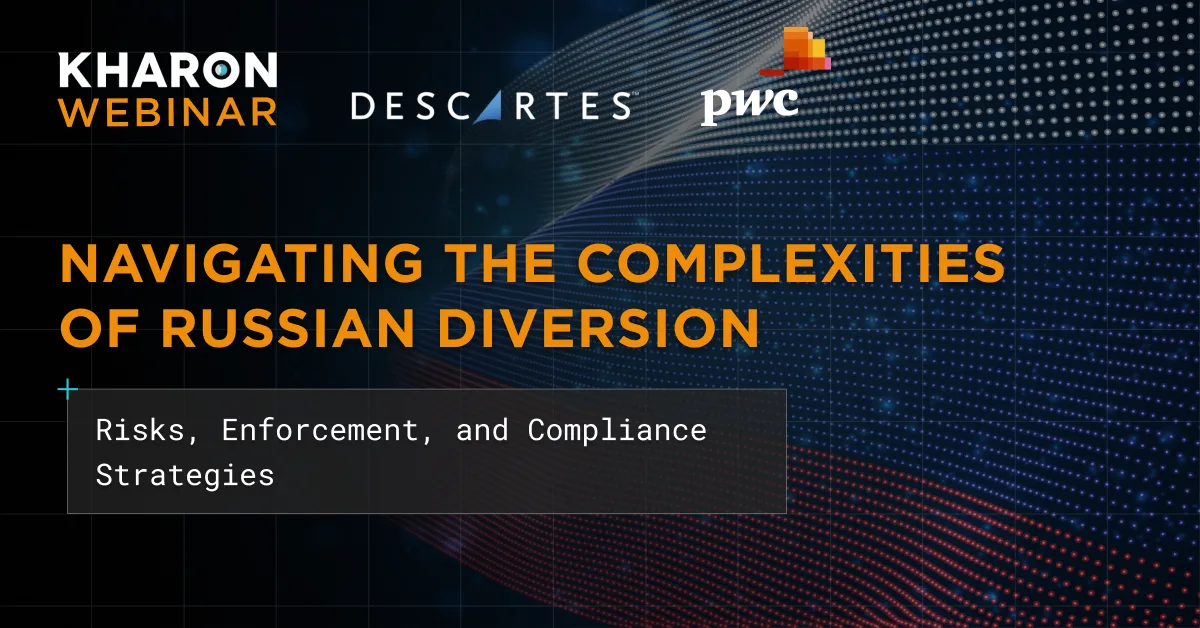In response to Russia’s invasion of Ukraine, the U.S., U.K. and EU published a “list of common high-priority items” aimed at restricting Russia’s military capabilities.
During a Dec. 10 webinar—co-hosted by Kharon and Descartes—panelists Freya Page, director of global outreach at Kharon; Thomas Lobert, senior solutions consultant at Descartes; and Vira Savva, senior manager for export controls and sanctions compliance at PwC, explored how Russia circumvents sanctions through diversion tactics. They also discussed the latest enforcement actions and strategies for detecting and mitigating these risks.
The panel emphasized the importance of proactive compliance and leveraging technology to avoid penalties and protect business operations from sanctions evasion.
During a Dec. 10 webinar—co-hosted by Kharon and Descartes—panelists Freya Page, director of global outreach at Kharon; Thomas Lobert, senior solutions consultant at Descartes; and Vira Savva, senior manager for export controls and sanctions compliance at PwC, explored how Russia circumvents sanctions through diversion tactics. They also discussed the latest enforcement actions and strategies for detecting and mitigating these risks.
The panel emphasized the importance of proactive compliance and leveraging technology to avoid penalties and protect business operations from sanctions evasion.
5 Key Insights From the Discussion:
- Russia’s Diversion Tactics: Russia has increasingly used third-party countries and complex supply chains to bypass sanctions. These tactics often involve intermediaries and jurisdictions with weak enforcement, making it difficult to trace the final destination of goods.
- Spotting Red Flags: Key indicators of sanctions evasion include sudden ownership changes, complex corporate structures, and unusual financial transactions. Companies should look beyond formal ownership records to identify deeper connections that could signal potential violations.
- Procurement Networks: Supply chains involving intermediaries or shell companies are high-risk. Understanding these networks and conducting thorough due diligence is essential to prevent violations.
- The Role of Technology: Tools like denied party screening, export classification and control, and real-time monitoring are vital for managing compliance and identifying risks.
- Be Proactive: Companies must demonstrate they’ve taken all necessary steps to prevent sanctions evasion. This includes maintaining a strong compliance program, conducting regular risk assessments, and investing in technology and training to stay ahead of regulatory changes

Click here to watch the webinar on-demand.
Recent Kharon Webinars:
- Export Controls: BIS’s Axelrod: Banks Are Key to National Security in Export Control Enforcement
- Forced Labor: Canadian MP Calls for ‘Aggressive’ Forced Labor Enforcement, Suggests Adhering to US Standards
- Forced Labor: Industry Expert: Businesses Should Focus on Assessing Risks, Mapping Supply Chains







